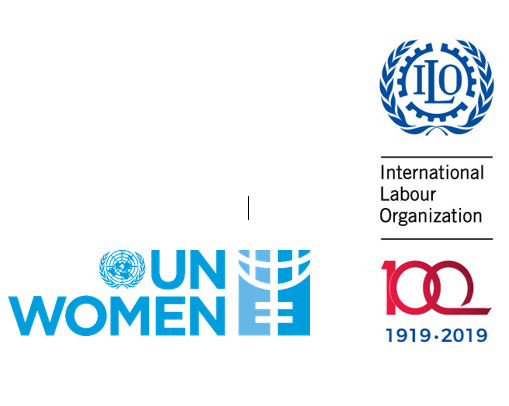Evidence indicates that domestic workers face significant risks of violence and harassment, isolation and lack of recourse to protection (ITUC, Undated). The combination of factors such as the privacy of their place of work, the lack of effective protection and the presence of discriminatory social norms against them exposes domestic workers to violence at work (ILO, 2018a, p.192). Studies reveal that domestic workers are vulnerable to violence and harassment at work including verbal abuse, insults, threats, sexual harassment, accusations of theft, insufficient provision of food, inhumane accommodation and excessively long work hours with no rest (ILO, 2018a).
The International Domestic Workers Federation (IDWF) has played a key role in identifying abuse, exploitation and highlighting the plight of many domestic workers. The IDWF has particularly focused on organising migrant and refugee domestic workers in the context of the care economy, safe migration and ending sexual harassment. The experience of IDWF demonstrates the importance of organizing domestic workers as an important way of preventing and responding to violence and harassment against them.
An IDWF survey revealed high levels of physical, psychological and sexual violence of domestic workers, related to the largely invisible and unregulated nature of their work, lack of protection of labour laws, and poor access to services (International Domestic Workers Federation, 2018). In Asia and the Pacific alone, around five million workers do not enjoy social benefits and labour protection (International Domestic Workers Federation, 2018, p.1).
The adoption of the ILO Domestic Workers Convention (No. 189) and Recommendation (No. 201), 2011, was a major landmark resulting in extending organizing and bargaining rights for a largely female-dominated sector in many countries. Convention No. 189 requires Members to “take measures to ensure that domestic workers enjoy effective protection against all forms of abuse, harassment and violence” (ILO, 2011c, Article 5). Following the adoption of Convention No. 189, the domestic workers’ and trade union organizations engaged in the “12 by 12” campaign, which identified the need to prevent violence, abuse and exploitation of migrant domestic workers, leading to some key reforms in some Gulf states to improve protection of domestic workers (ITUC, 2016; ITUC, 2014a).
|
Organizing and representing domestic workers |
|
Domestic workers in Uruguay Uruguay was the first country to ratify Convention No. 189 and is among the countries with the most advanced legislation in terms of protecting domestic workers. With the support of the Gender Department of the Inter-Union Assembly of Workers – Workers’ National Convention (PIT-CNT) trade union centre, domestic workers created the first national union representing domestic workers (Goldsmith, 2013). Collective bargaining on employment conditions in domestic work was established in 2006, when the law regulating the domestic work sector was adopted. The first collective bargaining agreement was signed in 2008 and encompasses the creation of a dignified working environment free from moral or sexual harassment, the respect for the right to intimacy, and the protection of psychophysical integrity in suitable hygienic conditions. A more recent collective bargaining agreement was adopted in 2013 after being negotiated in a tripartite commission, with representatives from the Ministry of Labour and Social Security, the Trade Union of Domestic Workers (SUTD), and the employers’ association “The Uruguay Housewives, Consumers and Users League” (LACCU). This agreement, which is applicable for the period 2013-2015 and covers more than 120,000 domestic workers, establishes a Tripartite Commission on Occupational Health (Ministry of Labour and Social Security, the Trade Union of Domestic Workers and the employers’ association, 2013). |
|
International Domestic Workers Federation action to end gender-based violence Action carried out by domestic workers encompasses advocacy campaigns and negotiating collective bargaining agreements to include gender-based violence. Other activities include training of members, provision of legal services, counselling, assistance in filing complaints and taking cases to court and giving practical assistance and support, for example in finding a shelter or financial assistance. Often this work takes place in partnership with NGOs, private businesses and lawyers’ collectives. In some cases, the organization is directly involved in rescuing a domestic worker through direct actions or negotiations with the employer or related persons (IDWF, 2018). |
